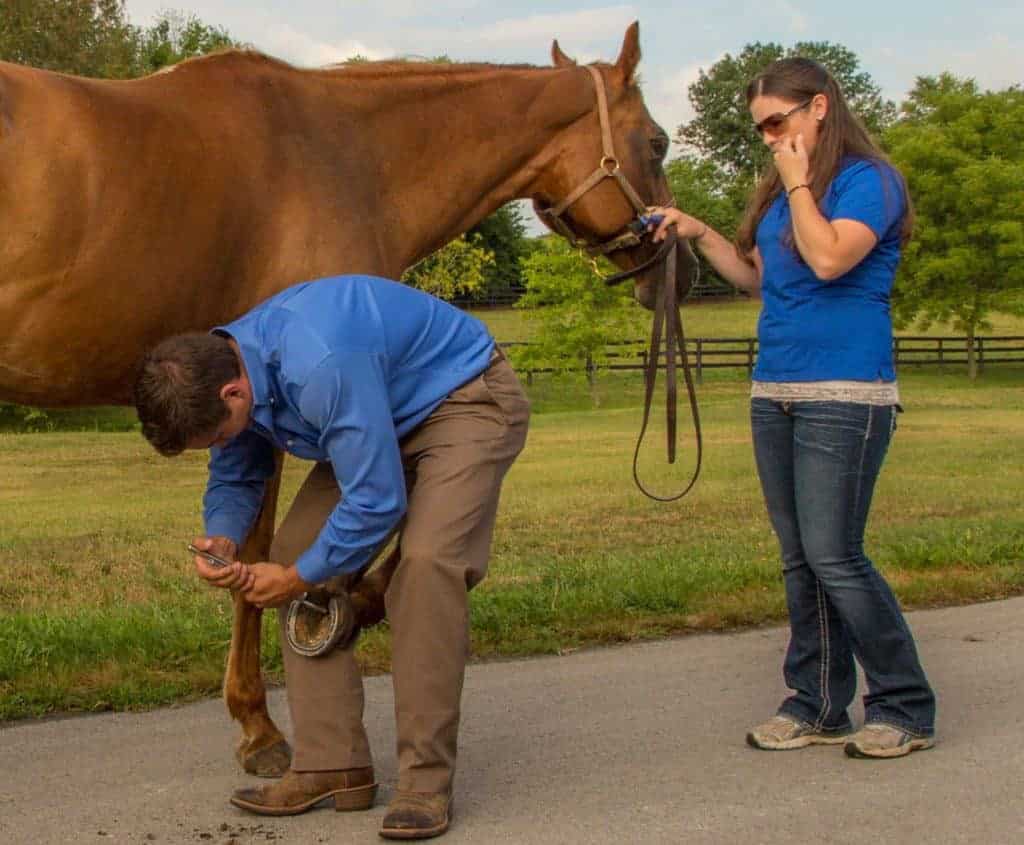
Bone Scans in Horses Not Always Accurate in Poor Performance Exams
Recent research suggests that bone scans in horses aren’t always accurate in diagnosing causes of lameness and poor performance in sport horses when used alone.
News and issues for equine health professionals

Recent research suggests that bone scans in horses aren’t always accurate in diagnosing causes of lameness and poor performance in sport horses when used alone.

Results from a study on a small population of horses suggest that freezing samples for short periods before testing won’t impact the results.

Scintigraphy gives provides the practitioner with information about some injuries related to bone or soft-tissue connections to bone, but it might not reveal many other sources of foot pain, researchers found.

Horse are especially sensitive to endotoxemia. To address the issue, Dr. Stacy Anderson of Lincoln Memorial University, in Harrogate, Tennessee, presents her research on neutrophil apoptosis (the death of cells that occurs as a normal and controlled part of an organism’s growth or development) in horses.

Horse health care often requires teamwork. Use these tips to find the right equine health professionals for your team.

If a horse tests positive for Lyme disease antibodies, does that mean the horse has the disease? Dr. Eric Swinebroad responds.

Equine internal medicine specialist Dr. Eric Swinebroad offers an overview of testing available for Lyme disease.

Two veterinarians share what has remained the same and what’s changing when it comes to diagnosing and treating this frustrating condition, once known as navicular. Read an excerpt from this in-depth article in our July 2018 issue.

Researchers found that standing surgery results were at least as good as those of surgeries performed under general anesthesia. The new procedure also allows better surgical access to the target tissues, they said.

Researchers found horses treated for superficial digital flexor tendonitis with a new biologic product recovered better than those that received a placebo.

New research suggests that herders developed veterinary dentistry in Mongolia and eastern Eurasia more than 3,000 years ago.

Researchers have learned that fractured splint bone healing can be optimized by replacing metal screws with absorbable ones.

Learn about equine oviduct anatomy and function and the role oviduct pathology on fertility from of Maria R. Schnobrich, VMD, Dipl. ACT, of Rood & Riddle Equine Hospital’s LeBlanc Reproduction Center.

German researchers found hoof angle changes affect horses differently and might create new problems.
One Auburn University veterinarian says she routinely uses acupuncture on horses for pain management associated with musculoskeletal conditions, such as arthritis, and for treating neuropathies.

The IDEA Veterinary Innovation Competition is intended to stimulate and develop creative ideas from young veterinary problem solvers.
Stay on top of the most recent Horse Health news with
"*" indicates required fields